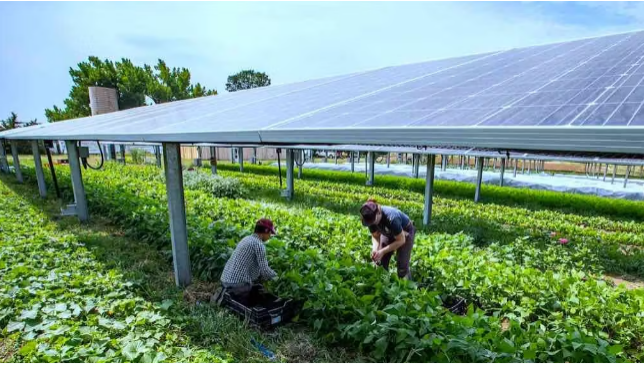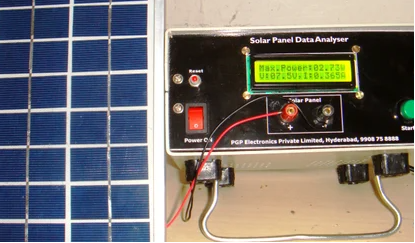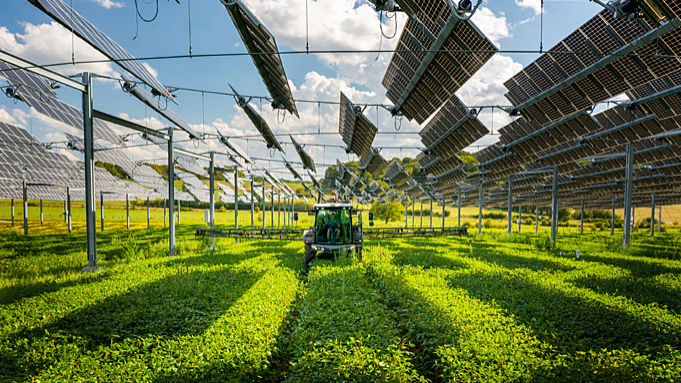How the Solar Power Meter is Revolutionizing the Agricultural Industry
In the agricultural sector, efficient energy management is crucial to optimizing operations and reducing costs. The solar power meter plays a key role in ensuring the effective monitoring of solar-powered systems used in agriculture. By offering real-time insights into energy production and consumption, the solar power meter facilitates solar power monitoring, helping farmers make data-driven decisions for their solar-powered irrigation, greenhouses, and other agricultural equipment. This blog explores the application of the solar power meter in agriculture and how it is improving energy efficiency and sustainability.
The Role of Solar Power in Agriculture
The agricultural industry is increasingly turning to renewable energy solutions to meet its growing energy needs. Among the various renewable energy sources, solar power is particularly suited to agriculture due to its scalability, sustainability, and cost-effectiveness. As solar panels become more widely adopted in agricultural settings, from solar-powered irrigation systems to solar-powered greenhouses, efficient solar power monitoring becomes crucial to ensure optimal performance.

A solar power meter is a critical tool in this effort, providing farmers with real-time data on their solar power production, helping them track energy consumption, and ensuring that their solar energy systems are operating efficiently. In this blog, we will delve into the importance of solar power meters in the agricultural industry, their application, and how they help improve energy efficiency in various farming processes.
What is a Solar Power Meter?
A solar power meter is a device used to measure and monitor the amount of electricity being generated by solar panels. The meter tracks energy production, providing data on solar power readings and offering detailed insights into the performance of solar systems. By using a solar power energy meter, farmers can monitor their solar systems in real-time, ensuring that the energy generated meets their needs and making adjustments if necessary.

The solar meter helps track not only the overall power generated but also specific details such as voltage, current, and power factor. This data can be critical in understanding the efficiency of the system and identifying any potential issues before they lead to significant energy losses.
Applications of Solar Power Meters in Agriculture
Solar metering in agriculture is becoming more widespread as farms and agricultural businesses adopt solar-powered technologies. The use of solar panel meters and solar energy meters helps farmers ensure that their solar installations are running optimally. Here are some key applications of solar power meters in agriculture:
1. Solar-Powered Irrigation Systems
Irrigation is one of the largest energy consumers in agriculture, especially in regions with limited water sources. By using solar-powered irrigation systems, farmers can reduce their reliance on grid electricity and lower energy costs. A solar power meter helps track the energy produced by the solar panels, ensuring that the system provides enough power to meet irrigation demands.
With a solar panel meter, farmers can monitor the energy produced throughout the day, ensuring that the irrigation system operates efficiently, especially during peak sunlight hours.
|
Application |
Benefits |
Role of Solar Power Meter |
|
Solar-Powered Irrigation |
Reduces reliance on grid power, cuts operational costs. |
Monitors energy production to ensure adequate irrigation power. |
|
Greenhouse Climate Control |
Provides consistent energy for heating, cooling, and ventilation. |
Tracks solar energy usage, optimizing temperature regulation. |
|
Solar-Powered Farm Equipment |
Powers tools and machinery without fuel costs. |
Ensures consistent energy flow, reducing downtime. |
2. Solar-Powered Greenhouses
In controlled environment agriculture, greenhouses rely heavily on energy for climate control (heating, cooling, ventilation) and artificial lighting. Using solar power in greenhouses can significantly cut energy costs and reduce environmental impact. A solar power meter helps greenhouse operators monitor energy production, ensuring that the system provides enough power to meet the temperature and humidity control needs.
3. Solar-Powered Farm Equipment
From pumps and lighting to electric tractors and harvesters, solar power is increasingly being used to fuel a variety of farm equipment. By implementing a solar energy meter, farmers can track the amount of power being used by each piece of equipment, allowing them to monitor the efficiency of their solar-powered systems and reduce downtime.
4. Solar-Powered Livestock Farming
Solar power is also used to support livestock farming, powering electric fences, water pumps, and lighting systems. A solar meter can track the amount of energy consumed by these systems, ensuring they operate efficiently and effectively. By optimizing energy usage, farmers can lower costs while maintaining high standards of animal welfare.
How Solar Power Meters Enhance Solar Power Monitoring in Agriculture
Accurate solar power monitoring is essential to ensure that solar systems are producing the expected amount of energy. Without a solar power meter, farmers would be in the dark about the performance of their solar systems, leading to potential inefficiencies and higher operational costs.
Here are some key ways that solar power meters help improve solar power monitoring in agriculture:
1. Real-Time Data and Alerts
Solar power meters provide real-time data on energy production, helping farmers track how much power their solar systems are generating at any given moment. Many modern solar meters also offer alert systems that notify farmers of performance issues, such as low energy production or system malfunctions. This proactive approach helps reduce downtime and minimizes the impact of energy disruptions.
2. Data Analysis and Optimization
Solar power reading data gathered from solar meters allows farmers to analyze system performance and identify areas for optimization. For example, if a solar panel meter shows that certain panels are underperforming, farmers can investigate potential causes, such as dirt buildup, shading, or technical issues. This data-driven approach helps farmers make informed decisions about maintenance and system adjustments.
3. Energy Usage Tracking
Farmers can also track energy consumption with a solar power energy meter. By understanding how much energy is being used for specific tasks, such as irrigation or greenhouse climate control, farmers can optimize their energy use and reduce waste. This level of monitoring helps ensure that the solar system is producing enough energy to meet agricultural needs.
4. Cost Savings and Efficiency
By regularly monitoring solar power production and consumption, farmers can maximize the return on investment in their solar systems. A solar energy meter allows them to identify inefficiencies and reduce energy waste, leading to significant cost savings over time. Additionally, solar systems with solar power monitoring tend to have longer lifespans, as maintenance issues are identified and addressed promptly.

How the Mushroom Solar Power Meter Supports Agricultural Operations
The Mushroom Solar Power Meter is an ideal solution for agricultural applications. Designed for precision and ease of use, it offers numerous benefits to farmers who rely on solar energy to power their operations. Some key features include:
Real-Time Monitoring: Keep track of solar energy production in real-time with the Mushroom Solar Power Meter, ensuring that your solar system is always running at peak performance.
High Accuracy: The Mushroom Solar Power Meter provides highly accurate data on solar power readings, making it easy to optimize energy use and troubleshoot issues.
Cloud Connectivity: Remote monitoring is possible with cloud integration, allowing farmers to check on their systems from anywhere, even when they’re not on the farm.
Custom Alerts: Get notified immediately of any issues with the solar system, allowing for faster troubleshooting and minimizing downtime.
For more information about the Mushroom Solar Power Meter and how it can optimize your agricultural operations, visit the product page here: Mushroom Solar Power Meter.
Conclusion
As solar energy continues to gain traction in the agricultural industry, the importance of effective solar power monitoring cannot be overstated. The solar power meter is an invaluable tool in ensuring that solar systems are functioning at their best, helping farmers optimize energy usage, reduce costs, and enhance overall system performance. The Mushroom Solar Power Meter offers advanced features and reliable monitoring capabilities, making it an essential tool for farmers looking to leverage solar energy for sustainable farming practices.
For more details, visit the Mushroom Solar Power Meter product page and get up to 15% off today!


